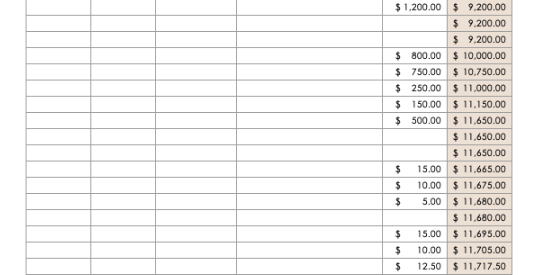The godfather of the spreadsheet, Microsoft Excel is a staple of nearly every workplace. Its robust data management capabilities remain useful to finance teams, even in the face of emerging technologies and specialized business applications. There are times when Excel just can?t be beat, especially when it comes to expense reports. Having a great expense report template is key. Here are some of the best:
Basic Expense Template
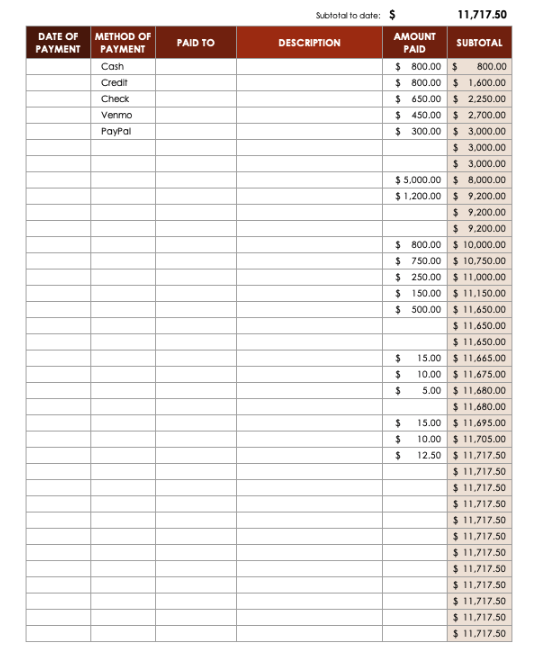 [source]
[source]
A Basic Expense Report Template is a great place to start, as it is very simple and easily customizable. It records the date, payment method, vendor, expense description, and payment amount. Finance teams can add more columns to capture other details as needed. Basic reports are especially valuable to smaller organizations and startup companies as they tend to give you only what you need and can be modified to fit your exact needs.
Travel Expense Template
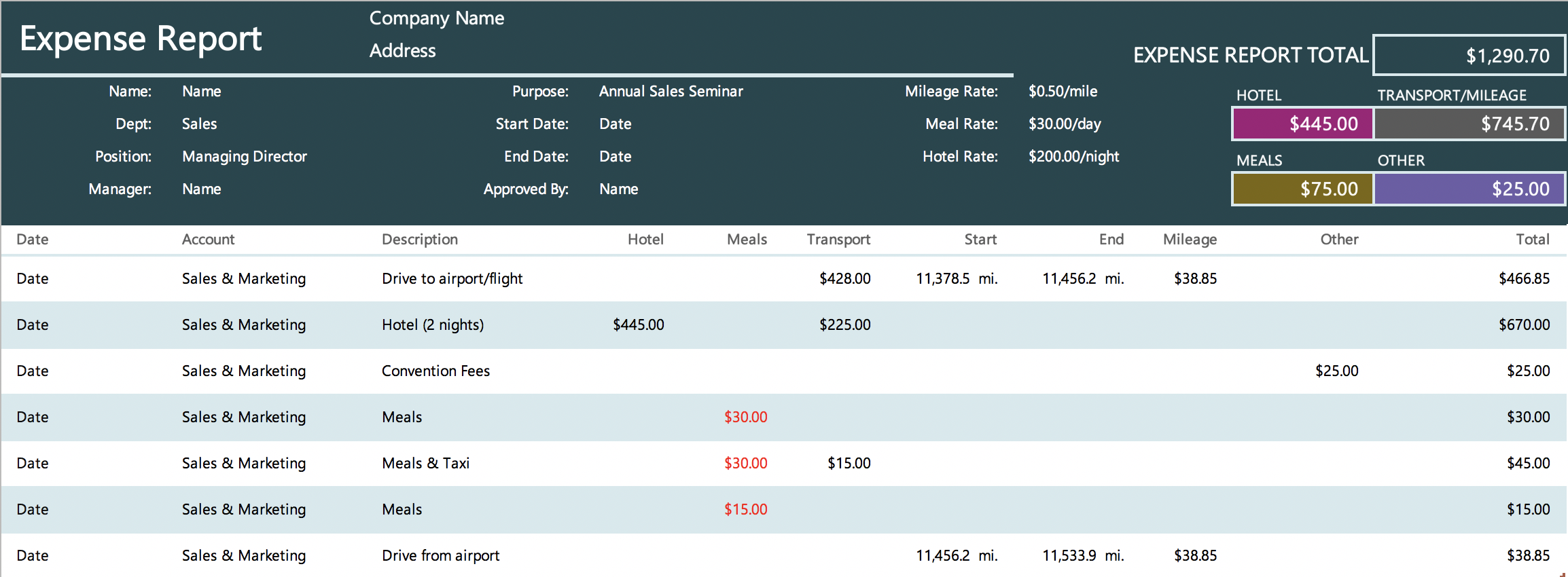 [source]
[source]
Travel expenses are one of the most common expense report types, so it?s no wonder they head the list regarding top templates. From the developer of Microsoft Excel comes this Travel Expense Report Template. This template organizes charges for hotel, meals, and transportation (including mileage if using your own car).
Business Mileage Expense Template
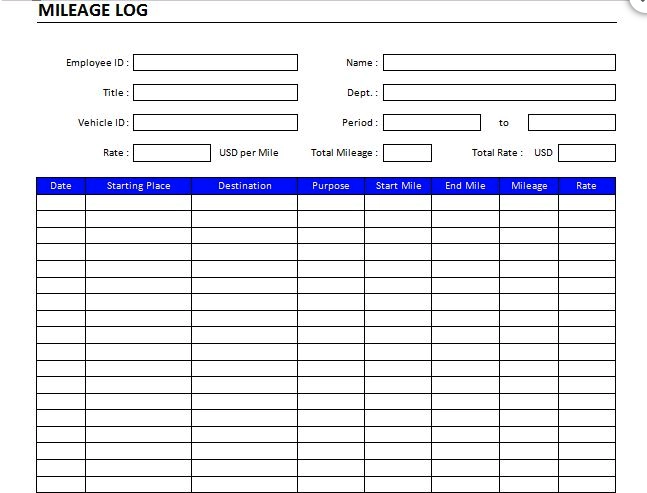 [source]
[source]
Sometimes employees will use their own vehicle for business purposes. While this can save your company the money that you may have spent on a car service or other transportation, you will likely need to compensate employees for their driving time. A Business Mileage Template can help you do just that.
Event Expense Template
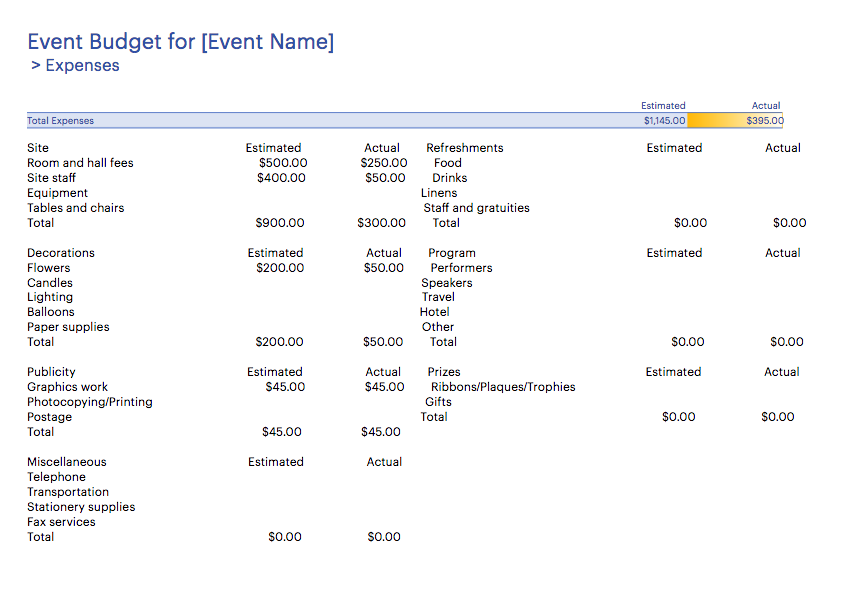 [source]
[source]
This Event Expense Report Template tracks estimated vs. actual costs for every aspect of your event. In this way, it acts as both a budget and an expense report, providing you an extra layer of data to make sure your event stays on track and inform future cost projections. Larger company events will frequently incur costs beyond just rental and insurance fees, at times requiring additional spending on things like public relations, vendor costs, and programming expenses.
Project Expense Template
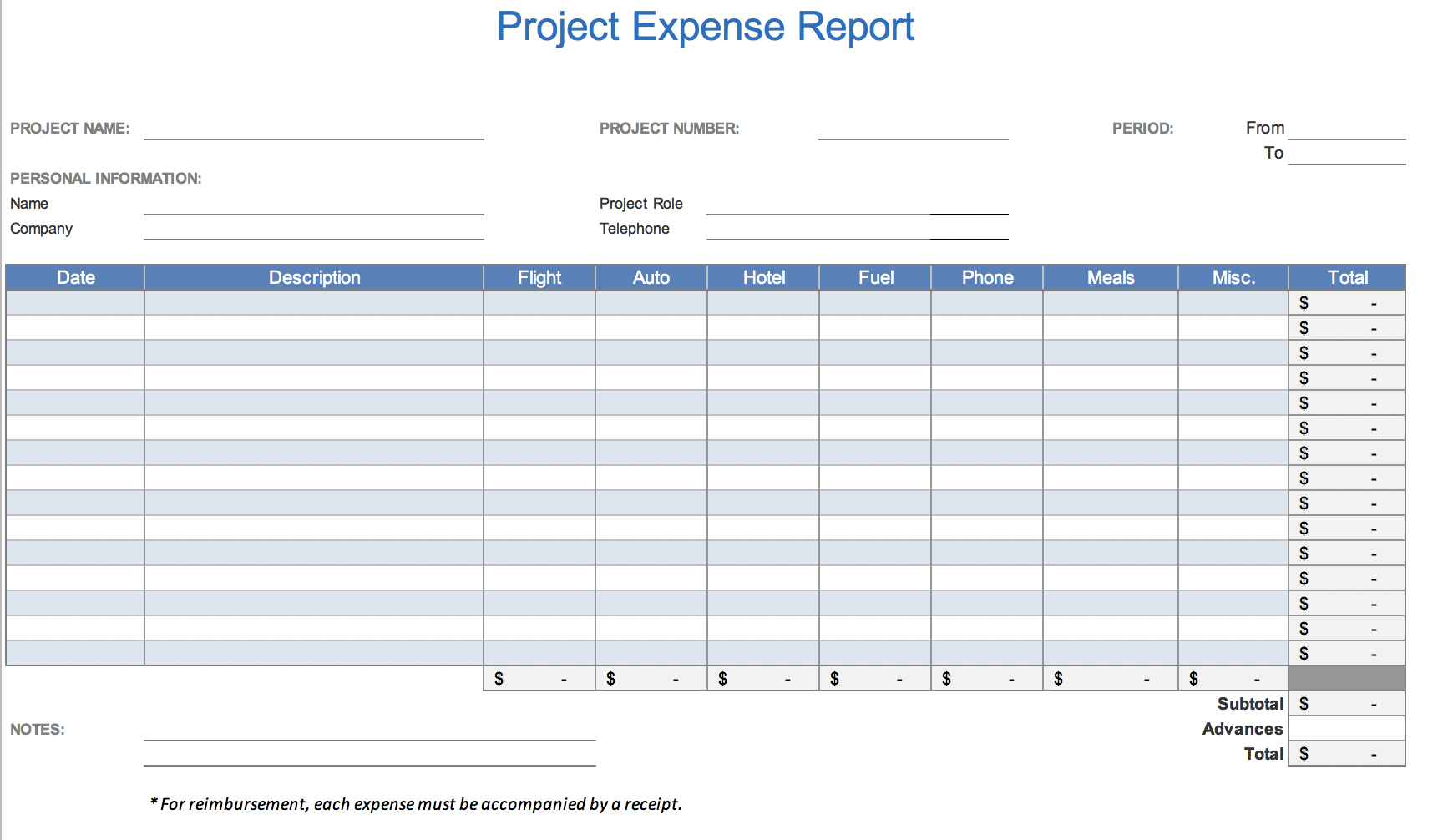 [source]
[source]
Project Expense Reports track and report all directly attributable expenses incurred during specific company projects. Generally, the expenses and expense types are pre-approved by management to fall in line with budgets and simplify later reconciliations. Often these costs are associated with general travel or lodging but might also include certain incidentals such as flight changes or venue costs at certain events your company is sponsoring.
Timed Expense Template
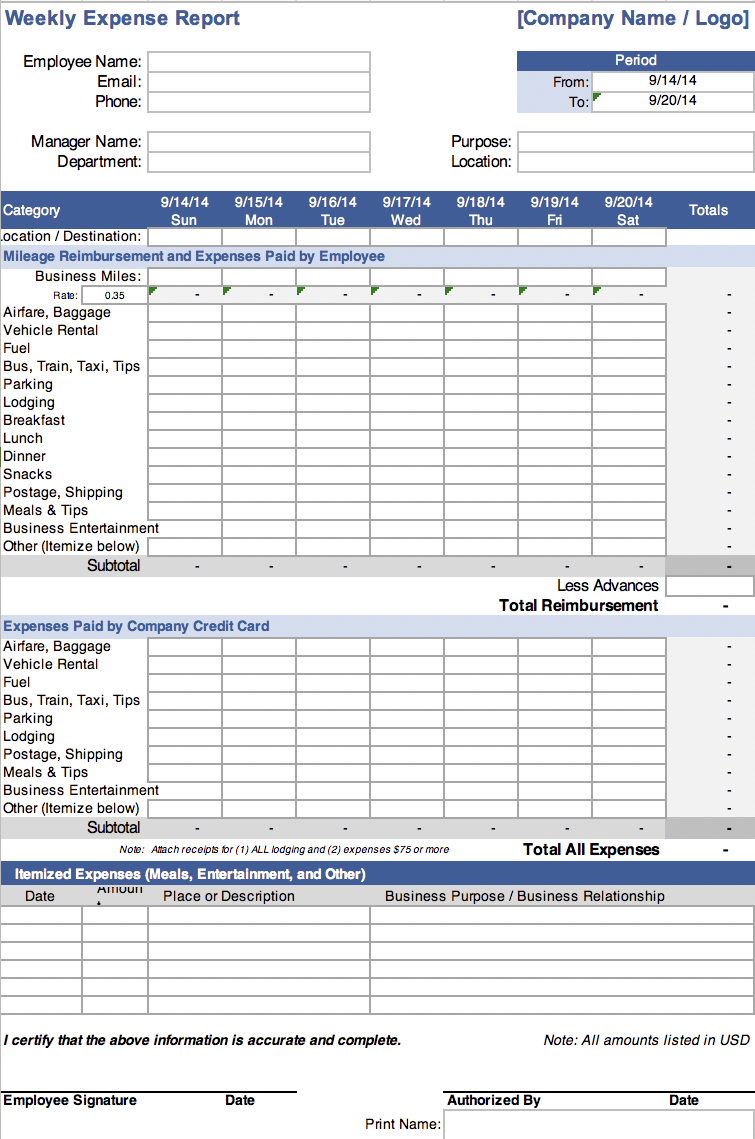 [source]
[source]
Typically, expense reports are filed on a weekly, monthly, quarterly, or annual basis. Depending on the payment structure and accounting practices of your organization, you may need to utilize one, or even more than one of these models.
Expense templates should be kept as separate sheets to ease collective reimbursements later on. Some companies will utilize both weekly and monthly reports to ensure that errors in reporting or payment processing don?t become large-scale detriments when it comes time to file quarterly or year-end documents.
Contractor Expense Template
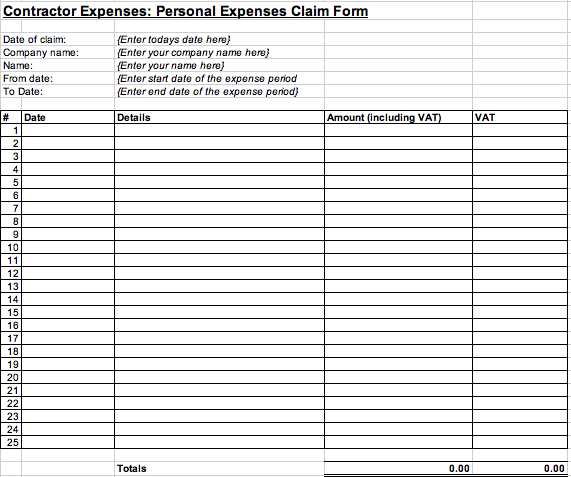 [source]
[source]
With so many projects varying in both size and scope, companies will often flex open positions to either temporarily or permanently expand the labor force. Keeping employee expenses separate from contractor expenses can help compartmentalize who is working on what and how it is contributing to the overall budget. The importance of this this approach is that it can be applied to full-time, part-time, or contracted workers, as many organizations are now comprised of mixed work forces. ContractorCalculator provides a basic example here.
Originally published at www.teampay.co on February 25, 2019.
